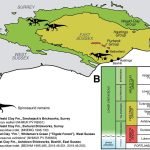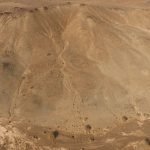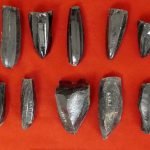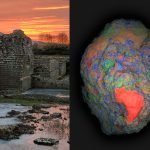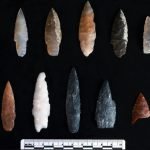Did curly hair keep early humans cool?
Curly hair may explain how early humans stayed cool while conserving water, according to a new study that looked at the role human hair...
Study reveals surprising diversity of spinosaur species in prehistoric Britain
Paleontologists have made an intriguing discovery about the ancient spinosaur species that once roamed prehistoric Britain.
Scientists discover a rare bronze age treasure in Oman
Two young archaeologists from Frankfurt, Irini Biezeveld and Jonas Kluge, recently made an amazing discovery in the city of Ibra in Oman, a country...
Scientists discover ancient Roman perfume recipe
Have you ever wondered what ancient Rome smelled like? Scientists made a fascinating discovery that brings us closer to answering that question.
Humans were using fire in Europe 50,000 years earlier than we thought – new...
Human history is intimately entwined with the use and control of fire. However, working out when our relationship with fire began and how it...
Scientists solve ancient mystery of Maya calendar
Scientists deciphered the secrets of the ancient Mayan calendar, discovering that the cycles in the calendar cover a much larger timeframe than previously thought
Africa’s grassy habitats emerged 10+ million years earlier than previously thought
A pair of studies published April 14 in the journal Science paint a new picture about apes, ancient Africa and the origins of humans.
Many...
MAYA people shopped at places like today’s supermarkets
More than 500 years ago in the midwestern Guatemalan highlands, Maya people bought and sold goods at markets.
Why was Roman concrete so durable?
The ancient Romans were masters of engineering, constructing vast networks of roads, aqueducts, ports, and massive buildings, whose remains have survived for two millennia.
Many...
Scientists find the oldest known projectile points in the Americas
Archaeologists have uncovered projectile points in Idaho that are thousands of years older than any previously found in the Americas.
This helps fill in the...


